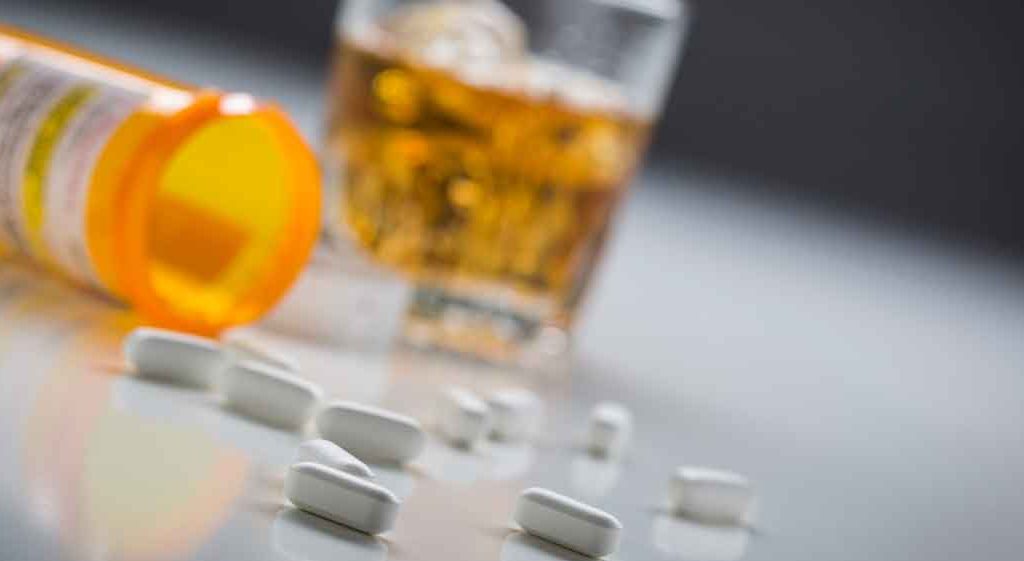Drug Interactions with Alcohol

Few people know that alcohol interactions with medications like acetaminophen, ibuprofen, blood thinners, and Viagra can be dangerous. Here's what you should know.
When we read headlines about a celebrity who died after taking a combination of drugs, we tend to think of illegal drugs or abuse of prescription drugs. But, in fact, people get ill and even die from dangerous but legal, non-prescription drug interactions with alcohol.
Alcohol is a powerful drug that has significant and sometimes unpredictable effects. It can make a medication less powerful — or much more so. The real dangers are when side effects of both alcohol and a medication combine. In general, women and older people are more affected by alcohol, and therefore more likely to suffer from dangerous alcohol interactions with medications.
According to Kevin Strang, PhD, a physiologist at the University of Wisconsin-Madison School of Medicine and Public Health and an expert on the effects of alcohol, you’re best off staying away from all alcohol while taking any of the medications below. If you take any of them regularly and drink alcohol, keep track of the amount of alcohol and have a talk with your doctor about whether you’re at risk for alcohol-drug interactions.
YOU MIGHT ALSO LIKE: Can You Overdose on Acetaminophen and Other Common Painkillers?
Drug interactions with alcohol
Acetaminophen (Tylenol)
Don’t take it within two hours of drinking any alcohol.
Here’s why: Overdoses of acetaminophen are the number one cause of liver failure. If you also drink alcohol, your risk goes way up. Your body breaks down alcohol with a coenzyme called NAD (nicotinamide adenine dinucleotide), which minimizes the harm it can do to your body. The same coenzyme breaks down acetaminophen. If you make NAD do double duty — breaking down both alcohol and acetaminophen — you could end up with liver problems or permanent liver danger.
Ibuprofen (Advil, Motrin)
Some people take ibuprofen to help relieve a hangover. Or let’s say you’ve had a painful injury or perhaps get a headache or menstrual cramps — you might take an ibuprofen to get through the day, and then maybe have a drink to relax after work. The big problem is drinking too much and taking ibuprofen could cause kidney failure.
Here’s why: Ibuprofen blocks the production of prostaglandins, which are linked to pain. So does alcohol.
Prostaglandins also prompt blood vessels in your kidneys to dilate when necessary, so they get enough oxygen. If you exercise or become dehydrated, your body might respond with making extra prostaglandins. If you drink too much alcohol, you may urinate more and become dehydrated. Your body would normally respond with prostaglandins, but the alcohol and ibuprofen together would inhibit that reaction. That means every time you combine alcohol and ibuprofen, a kidney cell may die, which hurts your kidneys over time. If you get very sloshed, you could end up in the hospital.
Aspirin
You may have heard that aspirin “thins the blood,” like the prescription medications warfarin (Coumadin) and clopidogrel (Plavix) used to treat heart disease. Those drugs block the production of prostaglandins, which are involved in blood clotting.
Because alcohol blocks prostaglandins, in effect, you’re thinning your blood more and could cause dangerous bleeding within your body.
In addition, both aspirin and alcohol irritate your stomach, and the combination could increase stomach problems.
Benzodiazepines (Valium, Xanax, Klonopin)
These prescription drugs make your nervous system less active. Alcohol has a similar effect. When people pass out or fall asleep, the combination can lead you to stop breathing, one of the most common ways people die during overdoses. The same problem applies to the pain relievers oxycodone (OxyContin) or hydrocodone (Vicodin).
Blood pressure drugs and Viagra
People with high blood pressure are commonly prescribed drugs that widen their blood vessels, known as vasodilators. Viagra is also a vasodilator. The other medical approach is to reduce the volume of blood, by prompting your body to expel water through urination. These drugs, which include chlorothiazide (Diuril), are diuretics.
Is alcohol a diuretic?
Alcohol is a diuretic, so if you combine it with another diuretic, you’re getting a bigger dose than your doctor intended. It will intensify the effect of vasodilators, again upping your dose. If your blood pressure drops too low, you may get dizzy and faint.
Cough medicine, allergy medicine, antibiotics, sleeping pills, antacids, diabetes medicine, and heart and arthritis medicine all can combine dangerously with alcohol. For more information, see this chart from the National Institutes of Health.
Beyond the dangers of its side effects, alcohol could interfere with the effectiveness of a medication. For example, if you take an antidepressant, you’ll be warned against drinking, which can be depressing and interfere with your recovery. If you take Wellbutrin, a popular antidepressant because it has a lower chance of sexual side effects, drinking alcohol increases your risk of a seizure.
Another reason to stay away from alcohol is that people with depression are about twice as likely as other people to develop problem drinking.
YOU MIGHT ALSO LIKE: When Mom Is Drinking Too Much Alcohol
Updated:
April 05, 2023
Reviewed By:
Janet O’Dell, RN